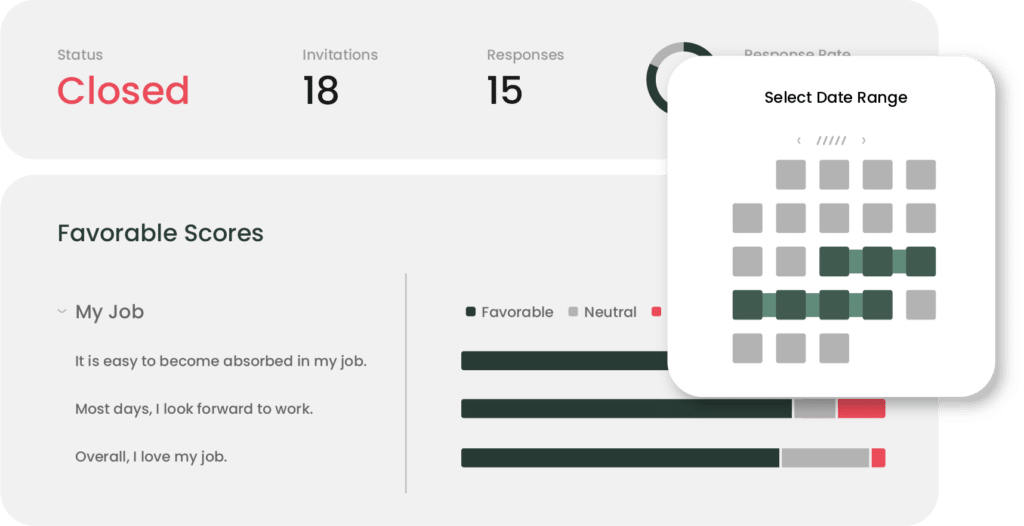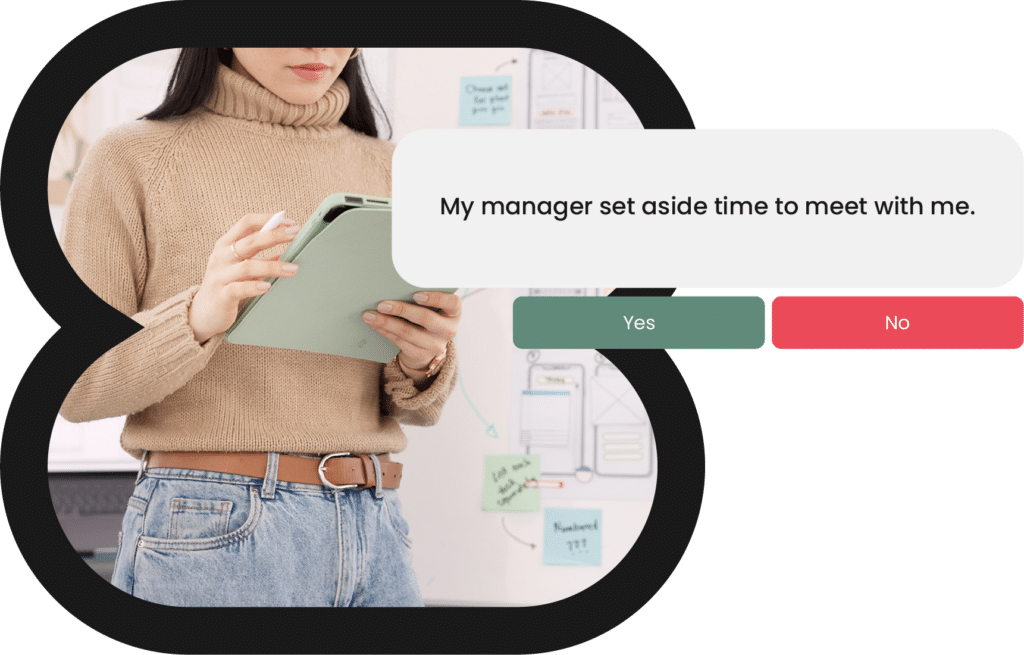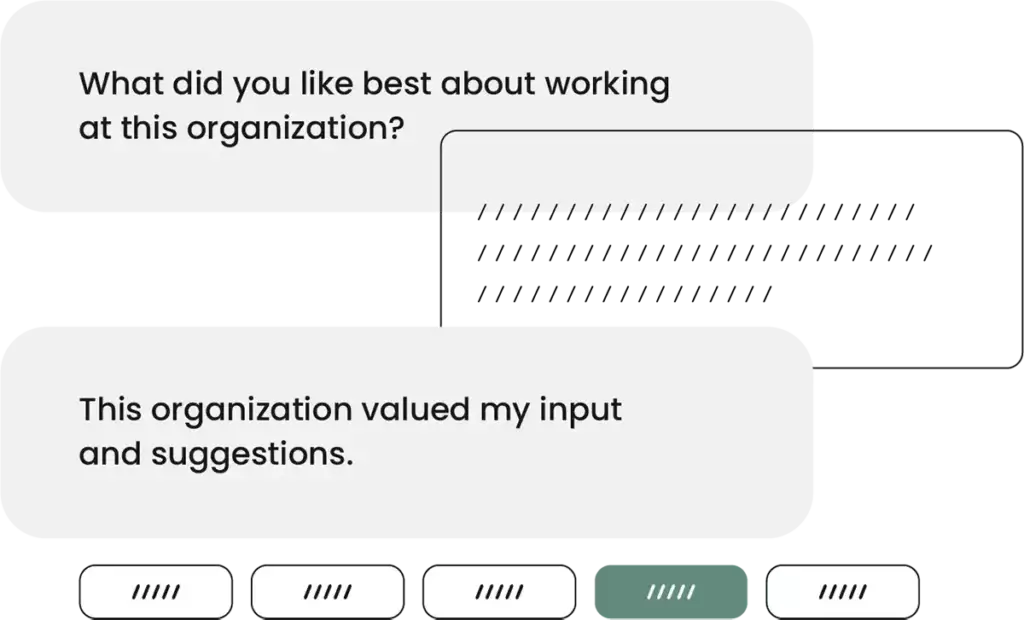Create Listening Campaigns Across the Employee Journey
An annual employee engagement survey forms an anchor-point to your continuous employee listening strategy. Think of it as a yearly physical with your doctor. It provides a comprehensive diagnostic, helps articulate and define organization priorities, and will guide prescriptive action plans that are designed to improve organization health.
Employee lifecycle surveys amplify the annual survey process by measuring progress (pulse surveys), targeting specific opportunities (ad-hoc pulse surveys), maintaining a constant check on employee sentiment (anniversary surveys), and gathering feedback according to predefined intervals with new-hire, onboarding, and exit surveys. Now, you have a comprehensive listening campaign that will help you deliver actionable data to your operational teams and leaders.
Organizational Pulse Surveys
Sometimes you need to dive deeper into what was uncovered from your annual anchor survey. Organizational pulse surveys are targeted surveys designed to measure a specific theme, department, or area. Questions are typically pulled from our standard 44 core survey items, but with some modifications. Also, you can develop your questions on your own, or work with one of our experienced consultants to develop the right approach.

Ad-Hoc Feedback Surveys
Want to find out what your sales reps think about the latest pricing changes? How about understanding the equipment needs of your warehouse staff? Is your organization ready for a major change? Then, a readiness assessment might be just the ticket.
Ad-hoc surveys can go out at any time, and they are targeted to certain populations and use different questions. The possibilities are endless. Ad-Hoc pulses offer faster execution and increased flexibility, but the resulting data and feedback may be limited due to the pulse’s one-time use and situation-specific questions.
Anniversary Surveys, Employee Net-Promoter Surveys (eNPS), and Continuous Listening and EX Monitoring
Let’s say you want to understand current employee sentiment, but you don’t want to survey the entire organization every month to gather this feedback. Anniversary surveys can be the answer. They are a form of continuous feedback by surveying only those employees celebrating a work anniversary during the current month. This effectively means a random sample of 1/12 of your employees is always taking place.
In addition to anniversary surveys, quarterly eNPS surveys will provide managers with valuable people data on a quarterly basis, all while only using two questions.
Along with eNPS surveys, we can help you build and manage additional pre-programmed surveys that will reach out on a scheduled basis to check on everything from busy-season struggles to how the latest assignments fared.

New-Hire and Onboarding Surveys
First impressions are everything. Our research shows that more employees quit during the first year than at any other point. Our New-Hire/Onboarding surveys focus on measuring both enablement (can the person do their job because they have been trained and given the right tools) and engagement (is the employee starting to feel connected to the organization).
Onboarding surveys monitor a new employee’s first steps at two intervals. At two weeks, we survey new hires to find out if the onboarding process was followed by asking questions about orientation, training, and job expectations. After 90 days, we conduct a second short survey to understand how integrated do employees feel in their new job. Both components allow you to track results by month and quarter and then provide results to the employee’s manager to take swift action in case there are any stumbles.

Exit Surveys
It’s not you, it’s me. Break-ups are hard. It hurts even more when you don’t know what went wrong. Exit surveys provide answers for your leaders as to why retention may be down. You can quantify exact separation reasons and diagnose hot spots by department, job role, or manager interaction. Search open-ended comments to understand where a relationship went off the tracks. Results are available immediately so you can take quick action to avoid losing any more key employees.

